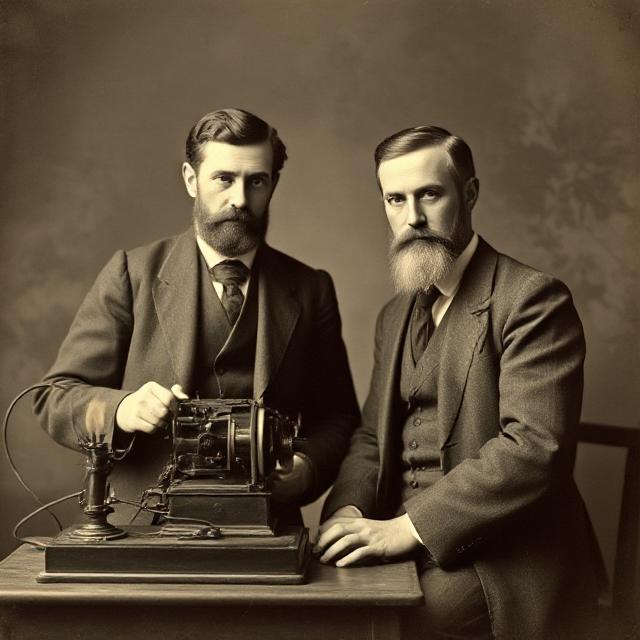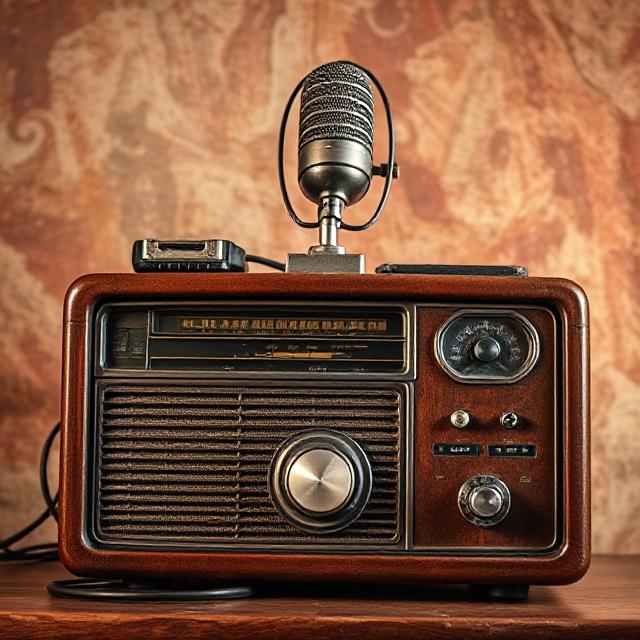
The Origins of Radio Broadcasting
From a Budding Idea to Full Fledged Studio: Tracing the Origins of Radio Broadcasting
The evolution of radio has been a very interesting journey, it has been one of the most transformative inventions of the modern era, and it has shaped how we communicate, entertain, and share information across the globe.
It’s hard to imagine a world without broadcasting, given the fact how common and easily available it is today. We can tune into news, listen to music, stream content and podcast, all thanks to the invisible radio waves carrying sound through the air.
The discovery of electromagnetic waves began centuries ago. It’s a remarkable tale of modern engineering and scientific discovery.
The Origin of radio can largely be traced back to the late 19th and early 20th centuries. Here’s a look at some of the key milestones and figures.
Also Read – From Playlists to Ads: How Radio Automation Software Simplifies Operations
The Foundational Concepts: Maxwell and Hertz

The Journey of radio began centuries ago. During the 19th century James Clerk Maxwell laid the groundwork. He came up with his theory of electromagnetism, which predicted the existence waves that could travel at the speed of light. Maxwell’s theories suggested that these waves could be harnessed.
In the 1880’s Heinrich Hertz continued to experiment on Maxwell’s theories and created and electromagnetic waves. He named theses waves as “Hertzian waves” which we now call radio waves. He built a transmitter and a receiver which could successfully generate and detect radio waves across a short distance. This was the first step towards radio broadcasting technology.
Also Read- The Role of Cloud Technology in Broadcast Scheduling
Wireless Telegraphy: Marconi’s Vision

An Italian inventor named Guglielmo Marconi, began his experiments during the mid-1890’s based on Heinrich Hertz work. He worked on improving the antenna which helped in broadcasting signals over longer distances.
In 1895, Marconi was successful in transmitting the Morse code over a mile. He achieved great success in 1901 by successfully transmitting a signal from Cornwall in England to Newfoundland in Canada.
Also Read – From Chaos to Control: The Power of Traffic Scheduling System in Broadcasting
From Morse code to Voice Transmission: De Forest and Fessenden

From transmitting the Morse code to transmitting voice required further advancements in research and technology. This is where Lee de Forest played an important role with his invention of a vacuum tube called the “Audion” in 1906.
This invention of De Forest’s amplified the weak radio signals thus making it possible to broadcast voice over radio waves over longer distances.
Reginald Fessenden a Canadian-American inventor made significant progress in 1906 by broadcasting one of the first audio transmissions. He broadcasted a program of a violin performance and speech on Christmas Eve in 1906, this broadcast was picked up Ship operators and this was considered to be the first true radio broadcast.
Also Read – The Rise of FAST TV: What It Means for Content Owners
The 1920’s and the Rise of Broadcasting

During the 1920s there was a huge improvement in broadcasting technology, more powerful transmitters and receivers. The early radio stations were often run by newspaper agencies, department stores and enthusiasts. Everything from music, weather, drama readings and news was being broadcasted.
For the very first time people could tune in and listen to music, news in real time, not just from their town but also from faraway places. This marvellous captivating technology brought everyone together. And it became a tool for entertainment, propaganda and education. Friends and family would gather around to experience and share wonderful moments.
This era was the establishment of broadcasting networks and radio became a part of everyone’s household.
Also Read – How Radio Broadcast Software is Transforming Station Management
Conclusion: A Legacy of Broadcasting

From Maxwell’s theory of electromagnetism and Hertz’s experiments, Marconi’s Morse code broadcasting to De Forest and Fessenden, voice broadcasting success. This is the history of the origins of radio and broadcasting,
Radio broadcasting is a story of how an abstract idea turned into a brilliant technology that still entertains the world,
It all started with a spark and a vision!!



